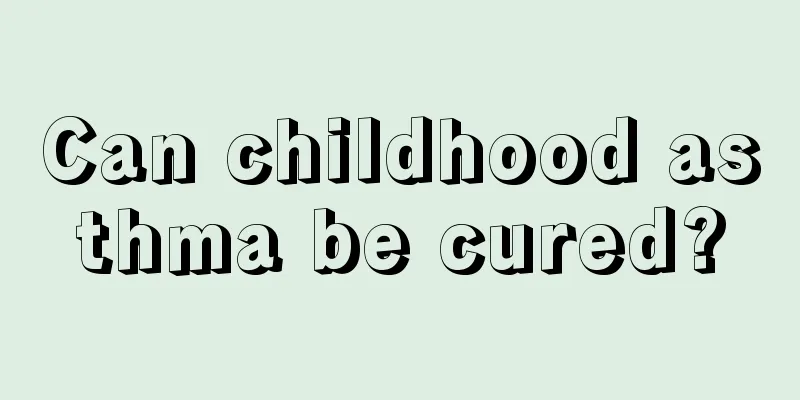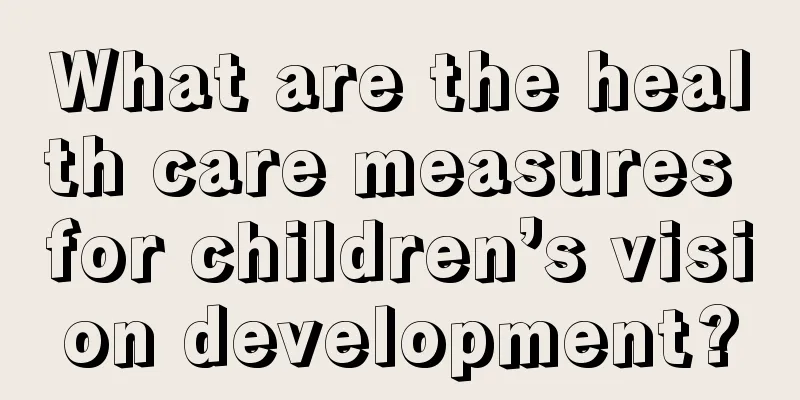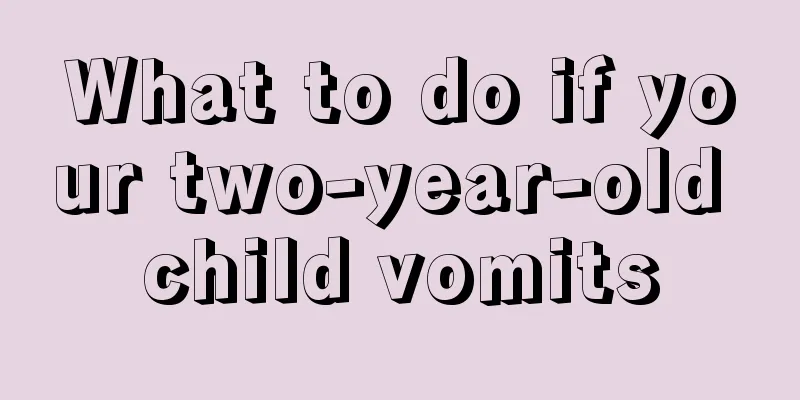Why do newborns always sneeze?

|
Newborns are very small and their development is not perfect. They are very worthy of our parents' love and protection. Whether the baby develops well determines whether our baby is healthy. So why do newborns always sneeze? Let’s take a closer look at why newborns sneeze all the time. Only by finding the cause can we get better treatment. 1. Frequent sneezing is a common phenomenon in babies under 1 year old, especially in the first 3-4 months after birth. Sneezing can be said to be a protective reflex of the body, which can indicate illness and expel foreign objects in the nasal cavity in time. 2. When a baby sneezes frequently, the first thing parents will think about is whether the child has caught a cold. Of course, catching a cold is one of the possible reasons, but for a newborn baby, this is a normal phenomenon of adapting to the environment. The fetus, which has been in the womb for nearly 10 months, is exposed to the stimulation of the outside air, different temperatures, humidity, and smells after birth, and its reaction is frequent sneezing. However, as the baby grows older and gradually adapts to the external environment, sneezing will gradually decrease. As soon as parents notice their children sneezing or having a runny nose, they assume that their children have a cold and often take out various anti-cold medicines from the family medicine cabinet for their children to take. In fact, some things that look like colds are not actually colds, but allergic rhinitis. Allergic rhinitis can be caused by various allergens. The main manifestation of allergic rhinitis is persistent or intermittent nasal congestion, which is more obvious when lying on your back. The symptoms worsen in the morning. Newborns or infants often breathe through their mouths due to nasal congestion and snore during sleep, resulting in dry lips and sore throat. In addition, nasal itching is also an important symptom. Almost half of the children often rub their noses, shrink their noses, wrinkle their noses or wipe their noses with their hands because of nasal itching. Rubbing your nose frequently and forcefully can cause the nasal septum to bend, affecting the ventilation of one nostril. It may also manifest as paroxysmal sneezing, which is more obvious in the morning or when inhaling cold air. Each time, you may sneeze several or dozens of times in succession, followed by a large amount of nasal discharge. The above symptoms often occur suddenly, disappear quickly, and then recur at irregular intervals. For children with a long course of illness, their sense of smell will be affected to a certain extent, and their olfactory function may be reduced or lost. 3. The phenomenon of frequent spraying of the nose is related to the anatomy and physiology of the nasal cavity. There are many olfactory nerve fibers on the nasal mucosa, which is an important sensory organ of the human body and can respond promptly to various external odors. The nasal cavity can be said to be a transportation hub, connected in all directions: it connects with the nasolacrimal duct upward and with the Eustachian tube laterally to reach the middle ear. Several sinuses on the face are connected to the nasal cavity and downward to the pharynx. Therefore, if there is a disease in the above-mentioned parts, the nasal cavity can obtain information in a timely manner. The nasal hairs in the nasal cavity filter the inhaled air and regulate the inhaled cold air after it enters the nasal cavity to make it close to body temperature. It turns out that there are many reasons why newborns always sneeze. In life, we must protect our newborns and not let them get sick. Newborns are very afraid of cold, so never let them catch cold, otherwise it will cause many diseases. So when newborns keep sneezing, we must give our babies timely treatment. |
<<: Why does a three-month-old baby not like to laugh?
>>: What is the reason for phlegm in the child's lungs?
Recommend
Can children get cataracts?
Cataract patients are generally elderly people, b...
Why do children always have fever at night?
When a child has a fever, the adults are the ones...
What should I do if my child is stupid?
The most important factor that determines whether...
What to do if your baby has a viral cold
A viral cold in a baby is the most troubling thin...
What to do if your baby's front teeth have caries
Tooth decay, also known as toothache, is mainly c...
What should I do if my baby has anorexia in summer? Five ways to solve anorexia
In summer, young children will suffer from anorex...
What to do if your child has a dry nose
The weather in autumn is relatively dry, and the ...
Why does my child yawn all the time?
If a child yawns frequently, he will soon realize...
What to do if your child has rhinitis
Children with allergic rhinitis may suffer from n...
The child is not growing, why don’t you see a doctor? Parents will regret it forever
If your child doesn't grow taller, should you...
Is it serious if a child has a white blood cell count of 20?
Many family members will worry about the blood co...
Reasons for children's low self-esteem
Only by creating a healthy and happy environment ...
Why do children have less hair?
Many parents are always worried that their childr...
A good way to eliminate phlegm in children
Children's physical fitness is relatively poo...
How to treat children's teeth grinding when sleeping?
Children love to eat sweets. They eat a lot of sw...









